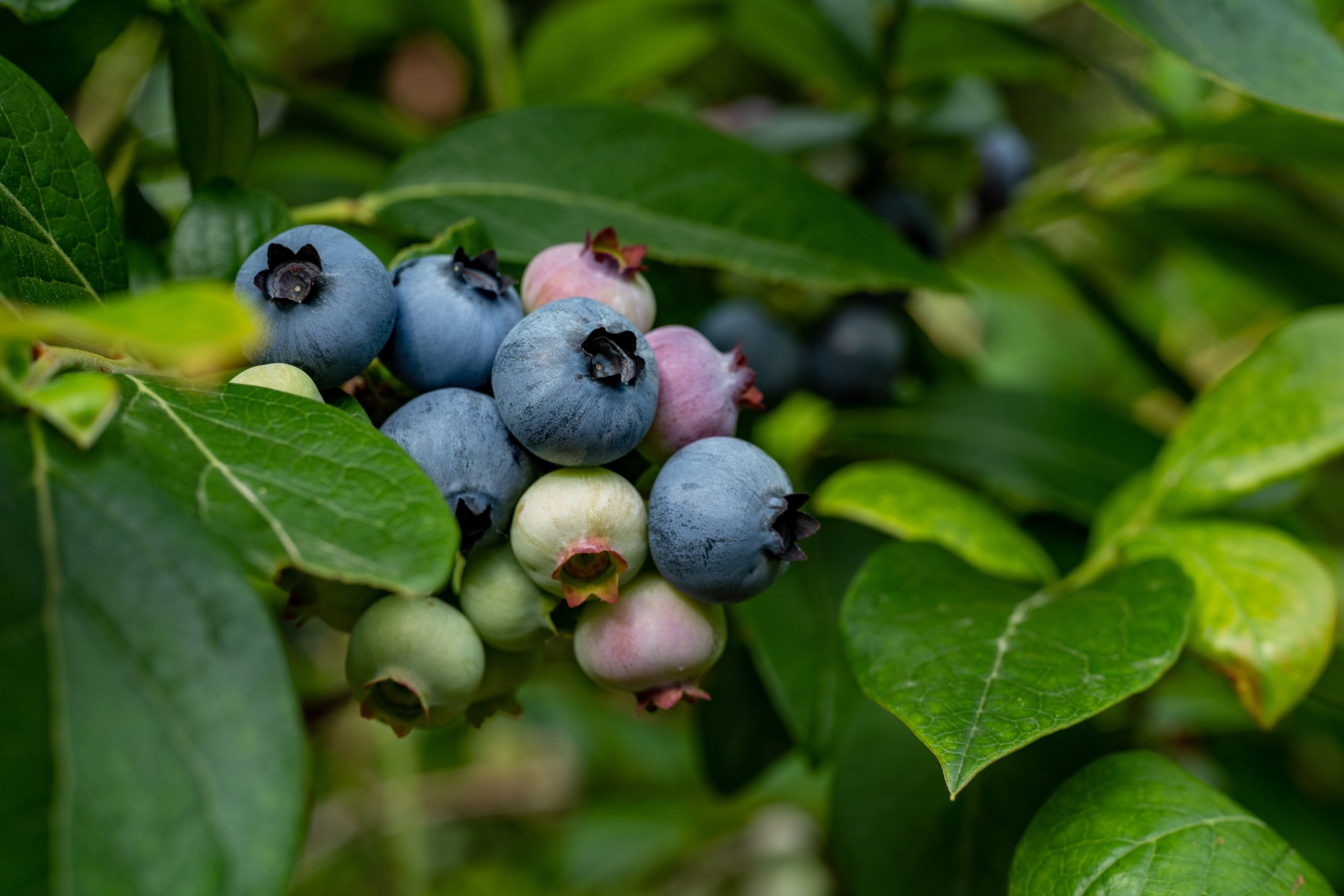Bees to the rescue for UK blueberries
Bumblebees have been credited with helping blueberries withstand wretched summer weather and produce a quality crop.
The wettest July since 2009 and the sixth wettest July ever was a major concern for UK berry growers, with blueberries particularly sensitive to overly wet conditions.
However, agronomists say they are delighted with how the crop has grown and stood up to the unseasonably wet weather, and have laid the credit at the door of bumblebees.
Creating a buzz
 Blueberry flowers prefer a special pollination mechanism known as ‘buzz pollination’ and bumblebees are particularly skilled at this technique, which involves the bee vibrating the flower to dislodge the pollen. This method ensures efficient pollen transfer and fertilisation of the flower, resulting in higher fruit set and better fruit quality.
Blueberry flowers prefer a special pollination mechanism known as ‘buzz pollination’ and bumblebees are particularly skilled at this technique, which involves the bee vibrating the flower to dislodge the pollen. This method ensures efficient pollen transfer and fertilisation of the flower, resulting in higher fruit set and better fruit quality.
Bumblebee-pollinated blueberry plants also result in more tiny seeds inside the berry. This tends to produce a bigger, firmer fruit, which can be an indicator of higher fruit quality and also greater weather resilience.
According to industry body British Berry Growers, producers have this year employed particularly robust bumblebee pollination schemes, with one major grower bringing in over 3,000 bumblebee hives. This has resulted in a crop which is better able to stand up to the unseasonal summer weather.
Many growers are also enhancing the number of other pollinators on their farms. They are planting wildflowers adjacent to crops to encourage a diverse range of pollinators which help biodiversity as well as the blueberries.
The careful work of UK growers and help from the bees has ensured a very good British blueberry harvest this year, British Berry Growers said. Peak production is underway now.
Sweet outcome
Agronomists are reporting sweeter and larger blueberries with better varieties and the cool summer weather having a role in this. Cooler weather has seen the fruit ripen slowly which typically allows more time for sugars to accumulate to create that sweet taste.
British Berry Growers chair Nick Marston said: “British berry growers have demonstrated remarkable innovation in using pollination plans to create a robust blueberry crop this season that has withstood the unseasonable July weather. They have managed to grow a good and sweet-tasting crop.
“The contribution of bumblebees to our farms has not only strengthened this year’s harvest but also highlighted the connection between bountiful crops and a thriving ecosystem.
“We’re thrilled to witness the success of this year’s blueberry crop driven by skilled growers across the country. Only a few decades ago, at this time of year most blueberries on supermarket shelves were imported, but that’s no longer the case. This underscores the need to support British growers for the work they do to boost the British economy and the nation’s health.
“As consumers gain awareness of the varied health benefits of blueberries, we are highlighting the importance of getting fresh berries in your diet through our Nature’s Vitamin campaign. Popping supplements cannot replace the goodness you get from eating fresh, home-grown food.”
24/08/2023







